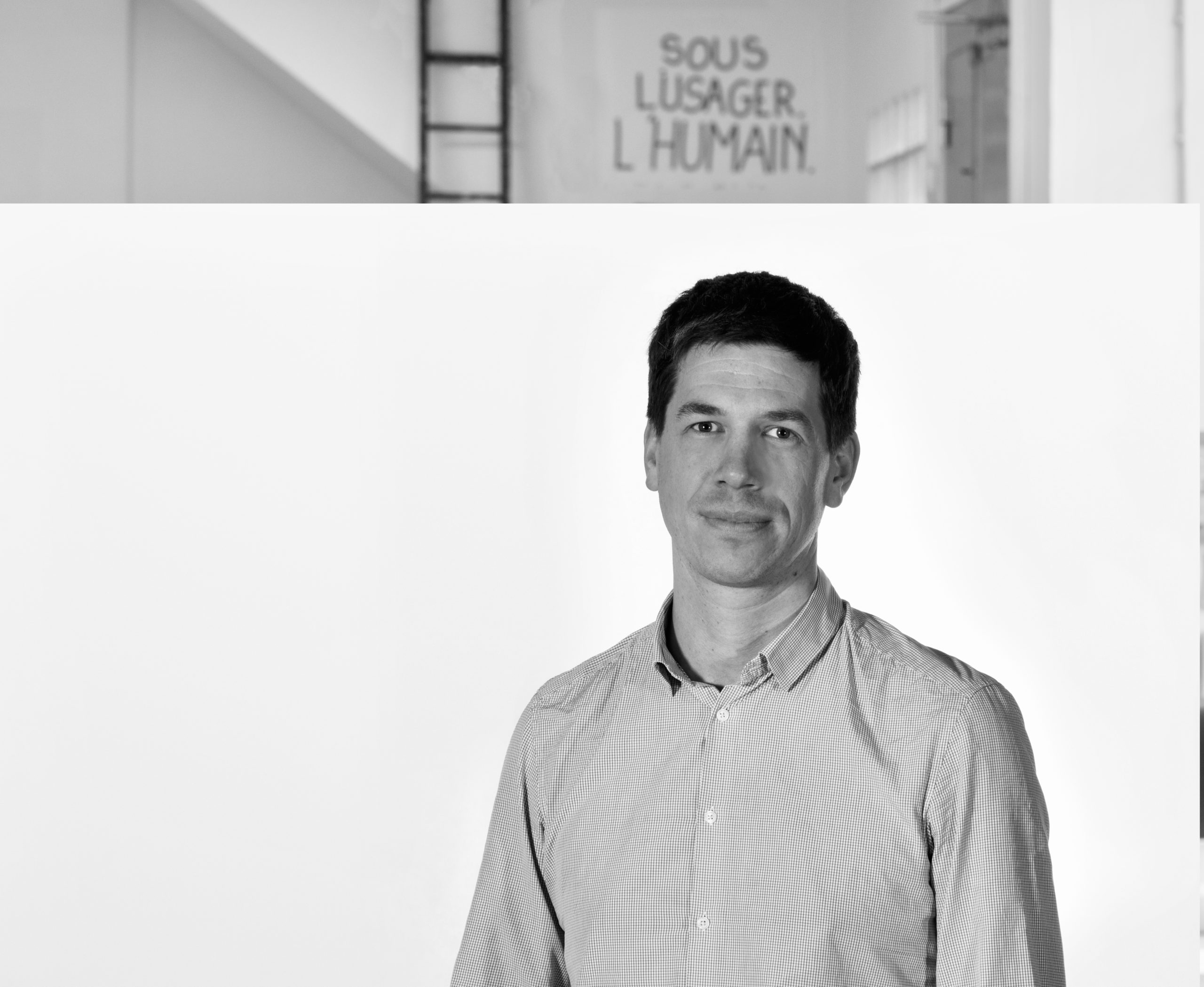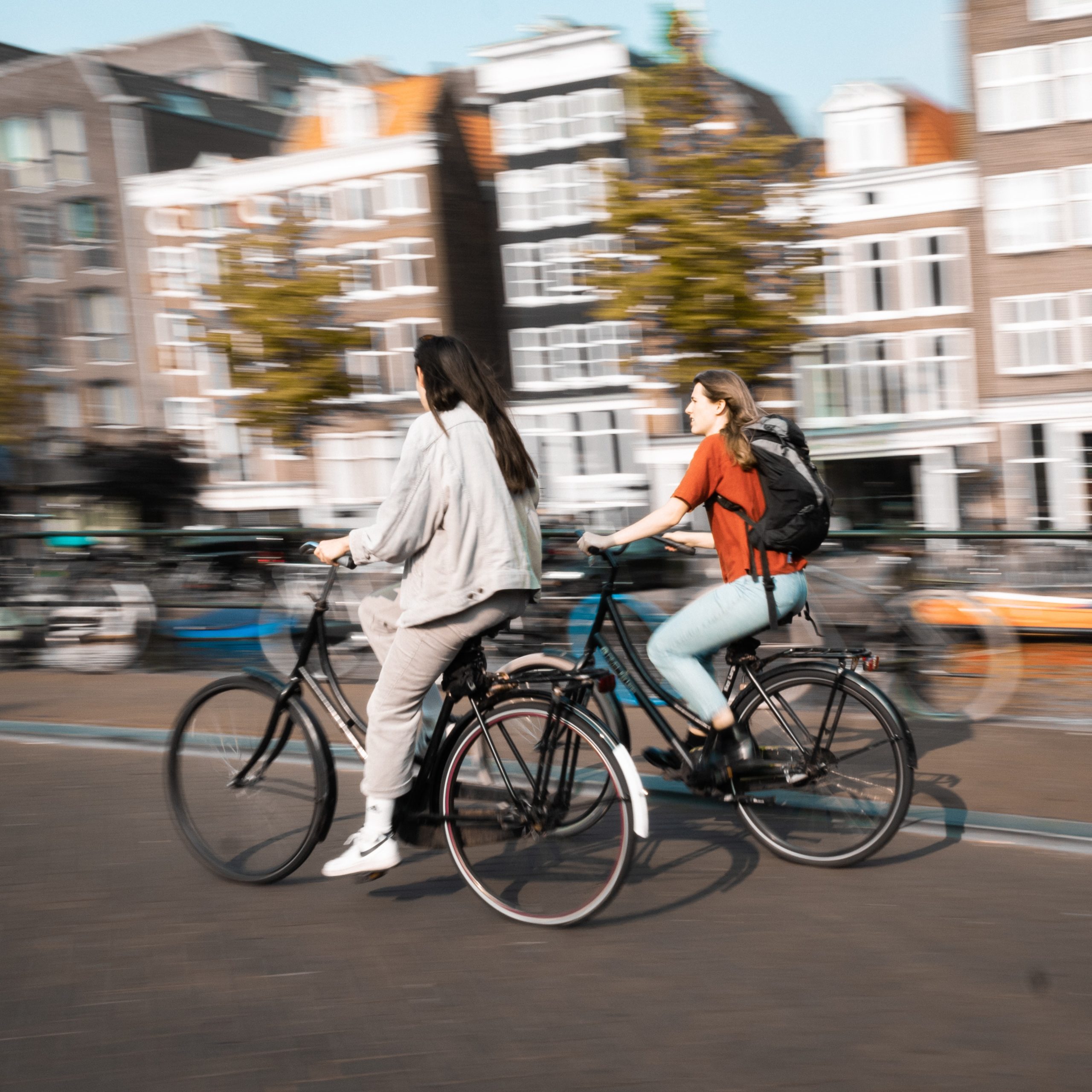
ROMAIN BEAUCHER
Cycling, a real asset for companies
“For us, cycling is one of the essential conditions for health at work and well-being in companies”
M.E.V.A, the Employers Movement for Added Bicycle, is an employers’ union that campaigns for all employees to be able to cycle to their workplace, their professional appointments and any other ride linked to their activity in the best possible conditions of safety and pleasure. For M.E.V.A., the cyclability of cities is also an issue of productivity and competitivity for organisations. Above all a source of pleasure, personal satisfaction, virtuous reallocation of public space and a shift towards more sustainable mobility, cycling is also a production factor. The members of M.E.V.A. are committed to dialogue with public actors in favour of the development of infrastructures dedicated to the safety of cyclists and systems that encourage the practice of soft mobility in the professional context. Romain Beaucher, one of its co-founders on behalf of the design agency Vraiment Vraiment, answered our questions.
Hello Romain,
Why did you found M.E.V.A ?
We founded M.E.V.A in a double trigger pulse. First, the idea for such an initiative emerged in January 2020. On a common messaging platform with Datactivist, we shared several incidents that happened to employees on bicycles in a single week – incidents, stress, theft… A sort of “black week”, which was the first trigger event. Then, we started to think about what we could do, as employers, in terms of safety or equipment to make it easier for our teams to ride their bikes, with the idea of extending the process to all managers who wish to do so, whether they run small, medium or large companies.
With the first lock-down, the momentum was slowed down for a while. In May 2020, an article published in Le Monde revealed the blocking of the Sustainable Mobility Package of the LOM law (Loi d’Orientations des Mobilités) by the MEDEF (French main employers union). It was the second trigger event for M.E.V.A. We wanted to share the words and the voice of all the employers who position themselves at the antipodes of MEDEF position, convinced of the role of the bike in companies, as a vector of competitiveness, good living and well-being.
Le Bon Coin, Spintank, Pix, Waoup… many players followed us since the launch of the M.E.V.A manifesto and landing page. A first working session was organised in July 2020, a bit on the fly, to get to know each other and define a few priority topics. Today, our organization counts 122 members, all sizes of companies are represented from all over our state, which means 12,800 employees including more or less than 1,500 cyclists. We are ready to speak on behalf of employers for whom cycling is also a competitivity lever!


What does M.E.V.A do on the ground?
MEVA is a small structure, run by Vraiment Vraiment and Datactivist in addition to our jobs. During the first work session, we launched a few projects, including a survey conducted with students from Sciences Po Aix on the perks of cycling in professional contexts. This is both a quantitative survey, based on a representative panel of 350 to 400 people questioned about their practices, and a qualitative one, with portraits and interviews. The Sciences Po Aix team did a great job, and the survey will soon be published.
We have another concern on insurance. Today, when an employee takes his or her personal car for a professional mission, they are covered by the company’s insurance. This is not the case if they ride their bike on the same journey. We are in negotiations with a major mutual insurance company to see how this can be changed.
In a second phase, we will probably carry out a participatory study on the obstacles and dangers encountered by cyclists in their work journey, for advocacy purposes.
Finally, a monitoring unit and a forum where we share good practices have been set up.
How can employers make a difference in practice?
An employer can implement a multitude of small and large initiatives to encourage cycling or to ensure that accidents are kept to a minimum, by working on safety. For example, an employer can offer bike repair or maintenance sessions, provide company bikes, pay for “sustainable mobility”… There are also problems with parking at the workplace, a subject that often causes tension. We can take decision on this specific point, in conjunction with local authorities. An employer can allow employees to take classes to reassure, organise urban rides, training on safety and good habits to adopt in big cities.
We can also move the lines by getting organised to defend the right messages to public players or decision-makers in terms of facilities at the city, neighbourhood, co-ownership level, etc. Advocacy is always more powerful and effective when we speak with one voice. Since employers’ words are often listened to, at the moment, we might as well take advantage of it to put across messages other than those of 20th century employers…
Can bike have a real impact on a company’s balance sheet?
The link between competitivity and soft modes of transport is, to date, an observation, an intuition. In France there is not much scientific literature on the subject. We are therefore trying to develop it by carrying out surveys and studies that will scientifically prove the time saved between meetings, the impact on cohesion and team spirit, and its role as a vector of corporate culture and identity.
These scientific demonstrations will reinforce our advocacy and will contribute to a moderate exemplarity between the different cities.
The strikes and then the “Covid facilities” seem to accelerate the transition to soft mobility by increasing the number of cyclists in the city. What is your assessment of this?
We have seen the appearance of children on cycling lanes in Paris and the proliferation of electric bikes. Some motorised two-wheeler drivers have switched to electric bikes. This is good news.
There has been a real change in Paris. Contrary to what the grumblers say, even in the rain and cold of winter, cyclists are still there, in large numbers. The “let’s talk about it in winter” argument is losing its bite. We feel that things are reversing a little on the road, where solidarity between cyclists is developing and the superiority of the car driver over cyclists is less omnipresent (this does not apply in all cities…). This is not yet the case for pedestrians, who are somewhat the last wheel in terms of facilities and attention in a city like Paris, for example. After that, Datactivists are for the most part installed in the Aix-Marseille Metropolis, and there, as far as cycling is concerned, it is another story. There is still a long way to go!

In your opinion, what are the remaining obstacles to the use of bikes by employees?
The FUB (French Federation of Bicycle Users) regularly makes an assessment of these obstacles. It seems to me that the most significant ones are the question of safety and fears associated with it, (public or private) urban equipment and the sanitary facilities in the office (not all offices have showers) and finally, theft.
What are the next steps for M.E.V.A?
This year we will publish the ongoing study on the existing link between competitivity and cycling. We hope to be able to organise a physical meeting of M.E.V.A members, and we hope the project of insurance for commuting by bike will take shape. We will also be campaigning again to encourage employers to join the movement.
Thank you for your answers!
